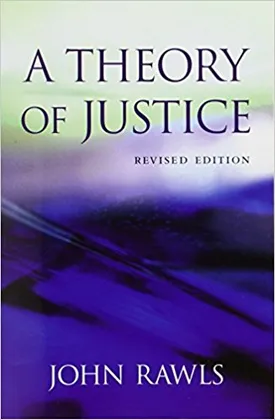A Theory of Justice by John Rawls
John Rawls’ “A Theory of Justice” is a comprehensive theoretical work on social justice, through which Rawls offers a clear concept of justice relative to the distribution of resources in society. His book is considered to be one of the most influential and important works in the history of political philosophy and has become the standard text for political theorists on justice. Rawls aims to bring about a theory of justice that allows for a society in which everyone can live together peacefully and fairly, and in this article, we will discuss some of the main ideas present in Rawls’ Theory of Justice.
First, Rawls argues for a concept of justice as “fairness” where everyone has an equal chance in all decisions of collective significance. This includes social and economic opportunities, as well as political rights regardless of one’s gender, race, class, religious beliefs, etc. Rawls calls this concept of justice “the Difference Principle,” which stipulates that even in society there must be inequality, it should be distributed in such a way that it is to the benefit of the least fortunate members of society.
Another major concept in Rawls’ Theory of Justice is his “Original Position.” In this model, Rawls suggests that justice should be determined through an impartial decision making process, with individuals behind a “veil of ignorance”—meaning that they are unaware of their personal preferences, characteristics and background. This allows everyone to make decisions as though they were in a state of equality, from which will emerge not only principles of justice, but also the way in which goods and opportunities should be distributed in society.
Finally, Rawls believes that individuals should have certain inalienable rights, or “basic liberties” that form the foundation of his Theory of Justice. These include: political liberties (such as freedom of speech, the right to vote, and freedom of assembly); Basic rights of personal property; Liberties of conscience; and the entitlement to equal opportunity. All of these liberties must be respected equally, and are paramount in Rawls’ theory.
In conclusion, John Rawls’ Theory of Justice is a comprehensive work on the concept of justice and its role in society. By outlining a concept of justice based on fairness and equal opportunity, prioritising the rights of the least advantaged, and stressing the importance of inalienable basic liberties, Rawls is able to provide a foundation on which social justice can be built and a framework for the distribution of resources in societies. This is why Rawls’ Theory of Justice remains the most important and influential work on the subject and the standard text for political theorists on justice.

